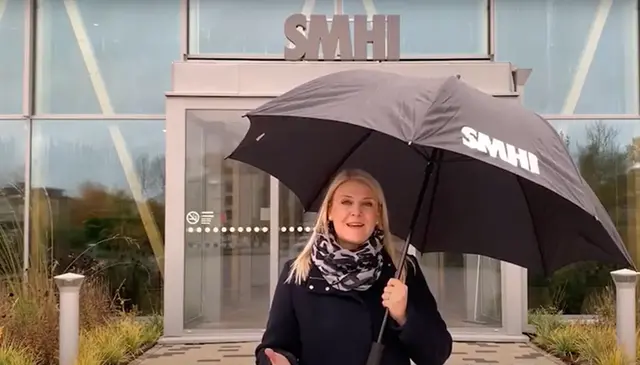How do you become a meteorologist?
Are you interested in weather, climate, and climate change? Do you want to understand how these issues impact our lives today and in the long term? Then a career in meteorology might be for you! There are many different roles you can pursue as a meteorologist.

Linnea works as a forecast meteorologist at SMHI in Norrköping.
"I’m definitely not a math genius, even though the studies involved a lot of math and physics," says Linnea Rehn, a forecast meteorologist at SMHI. "However, I’ve always had an interest in natural sciences, and I think that’s important for this profession!"
"My greatest strength is actually not the theoretical knowledge, but my ability to convey and communicate weather and forecasts. Much of my work is about that," continues Linnea, who is one of the meteorologists frequently heard and seen on the radio, in newspapers, and in video broadcasts on social media and on smhi.se.
Many different roles
There are many types of jobs for meteorologists. Some work on developing and communicating weather forecasts and warnings, while others focus on climate research. Some specialise in air quality and analyse how pollutants spread in the atmosphere, including their effects at the street level in our cities. We also have meteorologists who review historical data and the statistics based on weather observations.
It's an exciting and important profession! I feel that we contribute to people's safety and the sustainability of society every day. And there will be a need for more meteorologists in the future.
- Linda Rehn, Forecast Meteorologist at SMHI
Studying physics and meteorology
To become a meteorologist, one typically completes a three-year bachelor's degree in meteorology, studying mathematics, physics, and meteorology. This is followed by a two-year master's programme specialising in meteorology. It is also possible to apply for a master's programme in meteorology after earning a bachelor's degree in physics.
Mathematics and physics can be studied at various colleges and universities across the country. Meteorology is offered at universities in Stockholm and Uppsala. It is also possible to study meteorology abroad.
Here you can study meteorology
Meteorologists at SMHI come from diverse backgrounds. Here are some examples of relevant educational programmes:
Uppsala University
Meteorology - Bachelor's Programme in Physics at Uppsala University External link.
External link.
Meteorology - Master's Programme in Physics at Uppsala University External link.
External link.
